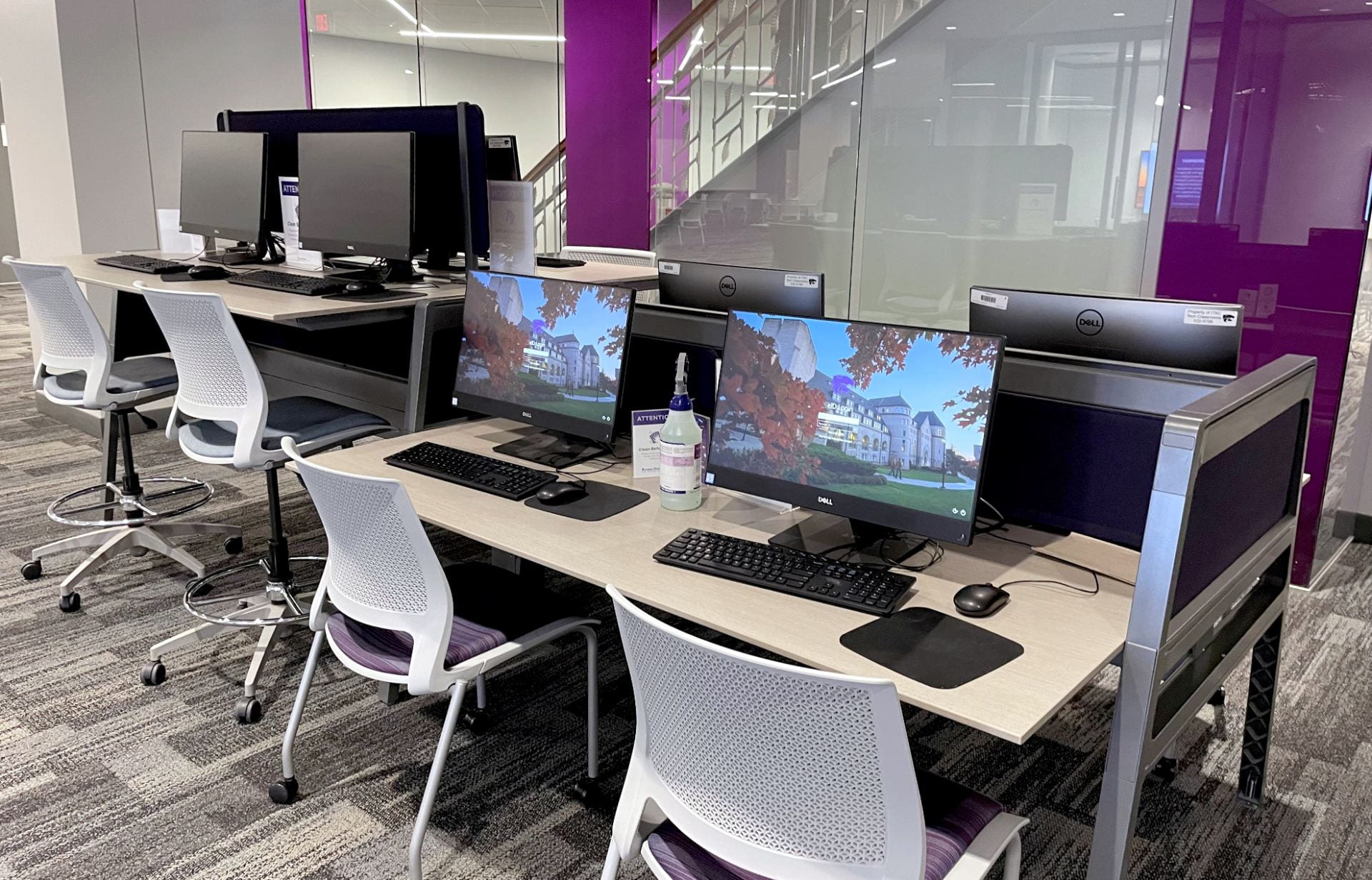The Qualtrics maintenance scheduled from noon on Sunday, Aug. 17, to 5 p.m. on Wednesday, Aug. 20, has been postponed. Qualtrics is available to create, edit and download surveys and results.
Category: –To K-State Today
IT News articles sent to K-State Today
IT Service Desk summer schedule
 The IT Service Desk will have reduced hours during the summer.
The IT Service Desk will have reduced hours during the summer.
You can contact the IT Service Desk at 800-865-6143 or 785-532-7722 or via Live Chat. For face-to-face service, visit the IT Service Desk on the second floor of Hale Library.
All Services
- Monday-Friday, 8 a.m.-5 p.m.
- Sunday, 1-6 p.m.
Phone and Live Chat
- Monday-Thursday, 5-8 p.m.
- Friday, 5-6 p.m.
- Saturday, 1-5 p.m.
- Sunday, 6-8 p.m.
IT Service Desk spring break schedule
 The IT Service Desk will have reduced hours during spring break, March 15-22. Regular hours will resume on March 23.
The IT Service Desk will have reduced hours during spring break, March 15-22. Regular hours will resume on March 23.
You can contact the IT Service Desk at 800-865-6143 or 785-532-7722 or via Live Chat. For in-person service, visit the IT Service Desk on the second floor of Hale Library.
IT Equipment Checkout and University Telephone Operator closed for spring break
The IT Equipment Checkout office and the University Telephone Operator service will be closed for spring break from March 17-21. If you have borrowed equipment that is due for return during this closure, the return date will be extended to Monday, March 24. Please note that any overdue equipment returned after March 24 will incur a late fee.
K-State is using geolocation technology to enhance cybersecurity
The internet is a powerful tool for learning and sharing information, but it also presents cybersecurity risks. To protect against hackers who might steal personal information, K-State utilizes geolocation to safeguard accounts by monitoring IP addresses. If suspicious activity is detected, users will receive an email notification with guidance on the necessary next steps, including updating their account passwords.
Continue reading “K-State is using geolocation technology to enhance cybersecurity”
Connecting to the correct wireless network
K-State offers wireless network services (Wi-Fi) for university students, faculty, staff and guests. There are three primary wireless networks available for connection:
- KSU Wireless: This secure network is available for all current students, faculty and staff, except those living in the residence halls or Jardine Apartments, who should instead use KSU Housing.
- KSU Housing: This secure network is specifically for residents of the residence halls and Jardine Apartments.
- KSU Guest: Visitors to the campus can connect to this open network, which is unencrypted and does not require an eID or password.
Continue reading “Connecting to the correct wireless network”
HRIS, KSIS and DARS maintenance scheduled for March 9
HRIS, KSIS and DARS will be undergoing maintenance from 12 a.m. to 4 a.m. on Sunday, March 9. This maintenance is necessary to ensure the systems remain secure and up-to-date. We appreciate your patience as we work to maintain our IT systems.
Free printing on the Manhattan campus
Do you need to print something? A limited amount of free printing is available for K-State students, faculty and staff on the Manhattan campus. K-Staters receive $10 of free printing during the spring and fall semesters and $5 during the summer semester. Unused balances do not roll over to the next semester.
To print wirelessly, you must be on campus and connected to either the KSU Wireless or KSU Housing network. Printers are accessible in computer labs, residence halls, Hale Library and the K-State Student Union. Continue reading “Free printing on the Manhattan campus”
Manhattan campus computer labs
Do you need to use a computer? There are several options available at the computing labs across K-State’s Manhattan campus:
- College of Business Admin. — Rooms: 1052, 1053, 3112, 3114 and 3121
- Hale Library — Located on the first, second, third and fourth floors
- K-State Student Union — First floor
- Paul Weigel Library of AP Design — Room 1128, Regnier Hall
- Sunderland Foundation Innovation Lab — First floor, Hale Library

Use Adobe Creative Cloud to create a multimedia experience
![]() All active K-State faculty and staff are eligible for a free Adobe Creative Cloud license, including Acrobat Pro DC. Adobe Creative Cloud offers over 20 applications and services, including tools for graphic design, video editing, web development, photography, mobile application creation and some optional cloud services.
All active K-State faculty and staff are eligible for a free Adobe Creative Cloud license, including Acrobat Pro DC. Adobe Creative Cloud offers over 20 applications and services, including tools for graphic design, video editing, web development, photography, mobile application creation and some optional cloud services.
With Adobe Creative Cloud tools, you can create graphics, illustrations, layouts, design pages and publish and share online videos.
Continue reading “Use Adobe Creative Cloud to create a multimedia experience”